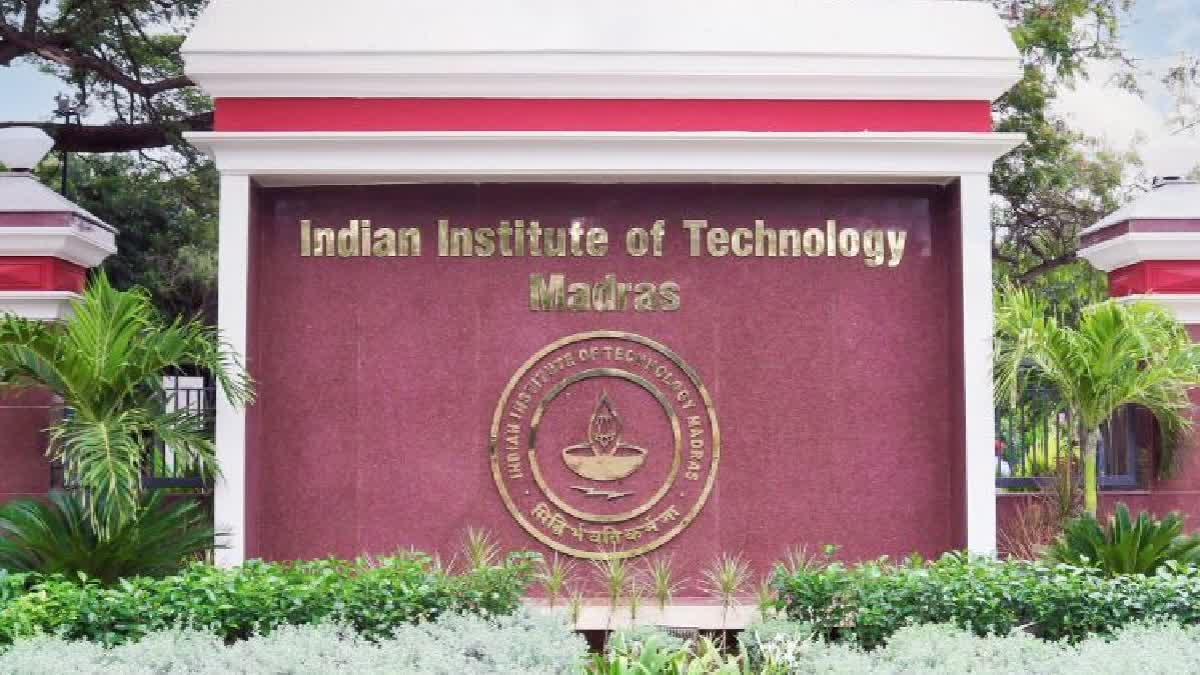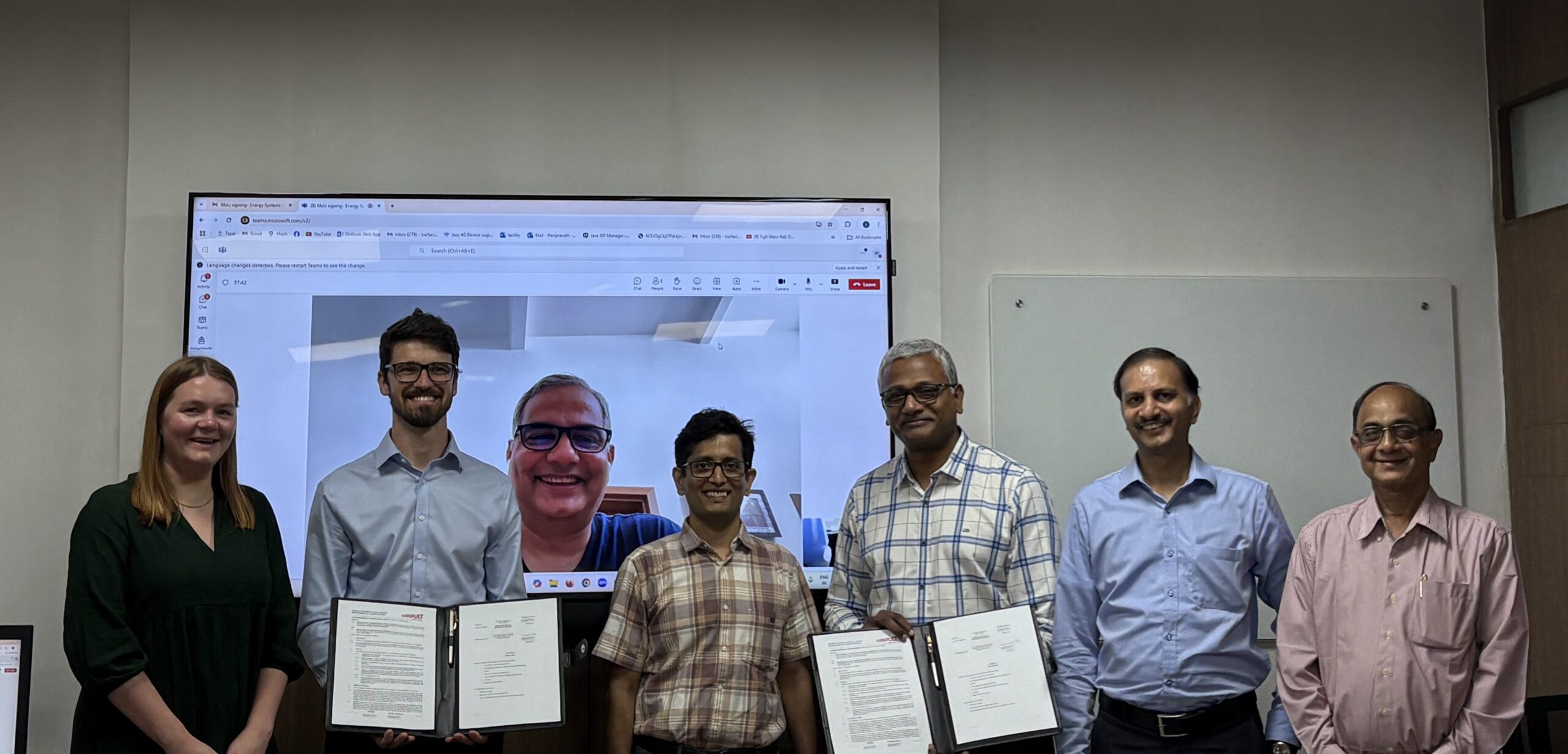Prof Guhan Jayaraman of the Department of Biotechnology is a recipient of the 2024 TRENDsetter program award under the High Risk High Reward track that is designed to encourage principal investigators to develop deeper collaboration with founding members of the consortium while delivering technologies that are at mid TRL.
Prof Guhan’s research focuses on harnessing the potential of synthetic biology to engineer microorganisms capable of producing bulk chemicals from lignocellulosic biomass. The overarching goal is to replace petroleum-based chemical synthesis with renewable, biologically driven alternatives, thereby advancing the principles of a circular bioeconomy and contributing to climate change mitigation.
Through targeted genetic engineering, several microbial strains—primarily Pseudomonas taiwanensis, Acetobacter bailey, and Lactobacillus plantarum—were developed to convert both lignin and the sugar fractions of lignocellulosic biomass into high-value chemicals. The first two organisms were specifically engineered to metabolize depolymerized lignin, a complex polyaromatic compound that is typically resistant to bioconversion and toxic at high concentrations. These engineered strains successfully produced rhamnolipids and muconic acid, key platform chemicals with wide-ranging applications in the bioplastics and textile industries. In parallel, Lactobacillus plantarum was modified using CRISPR-based tools to redirect its metabolic pathways toward overproduction of D-lactic acid and acetoin, by knocking out competing routes in its native metabolism.
The results achieved so far demonstrate the feasibility of producing these target metabolites in laboratory-scale bioreactors at high titers and yields. Efforts are now underway to scale up production to the pilot stage (200–1000 L), which would make these processes commercially viable and attractive for industrial technology transfer. In this work some essential monomers are developed that will help in synthesizing polylactic acid (PLA), a biodegradable plastic that can serve as a sustainable alternative to conventional petroleum-derived plastics such as PET. This dual impact—replacing fossil feedstocks and mitigating plastic pollution—highlights the environmental and industrial significance of the research.
Beyond these achievements, the work represents one of the few successful demonstrations of lignin valorization through microbial engineering, an area that remains underexplored compared to cellulose-based biomass conversion. The ability to design microorganisms that can tolerate and transform aromatic compounds into useful products marks a major advancement in sustainable biomanufacturing.
Prof Guhan added on the intrinsic motivations and rewarding aspects of the TRENDsetter program: “The research itself is a reward of working. The fact that we are able to accomplish the objectives we set out to accomplish was definitely rewarding. And this particular project provided the impetus. It catalyzed the proposals that we are able to write and submit based on the results that we got from this project for scaling up the production of some of the chemicals. Some of the other rewards, like we got some very good publications and one of the most rewarding things where this project also contributed is the fact that we are going to set up a bio foundry with help of substantial funding from BIRAC, which is mainly a facility to engineer organisms and develop processes with engineered organisms in partnership with industry”
The ‘BioE3 (Biotechnology for Economy, Environment and Employment) Policy from Government of India for ‘Fostering High Performance Biomanufacturing’ has laid down the framework for the implementation of the Biomanufacturing and Bio-foundry Initiative and will enable start-ups, SMEs, industries and academia with access to shared infrastructure/facilities and resources for pilot & precommercial scale biomanufacturing of viable commercial bio-based products. One of the 6 hubs under this initiative is planned at IIT Madras and the focus will be leveraging expertise in bio based chemicals and enzymes towards energy and sustainability applications. The establishment of a state-of-the-art Bio Foundry, supported by substantial funding from BIRAC, will serve as a collaborative platform for engineering organisms and developing biomanufacturing processes with strong industrial partnerships. As one of the few such facilities in India, it will significantly accelerate innovation in synthetic biology and industrial biotechnology.
On the potential of the industry-academia collaborations that have been unlocked by the Energy Consortium via its flagship TRENDsetter program, Prof Guhan adds: “One of the very nice experiences is that I actually got to meet people from a lot of different areas who are working in the area of energy and climate change, etc., and working on a lot of different technologies. So, this kind of network and interaction has certainly opened up avenues for possible collaborations with some of them. This kind of industry-academia partnership is perhaps a way forward where we have the energy consortium now being set up with several key industry players and the fact that these industry players are able to give extremely valuable inputs and feedback into what you are doing and help us focus better on taking our research from bench scale to commercial application.”
Looking ahead, the focus of the work underway by Prof Guhan and his co-PIs is on scaling up both the scope and the impact of engineered biological systems. By advancing microbial strain engineering and integrating process optimization, this line of research aims to multiply production capabilities and expand the portfolio of biochemicals derived from renewable sources. The work exemplifies the transition from laboratory innovation to industrial application, demonstrating how biological design can transform low-value biomass and waste streams into sustainable, high-value products for a cleaner, circular economy.









